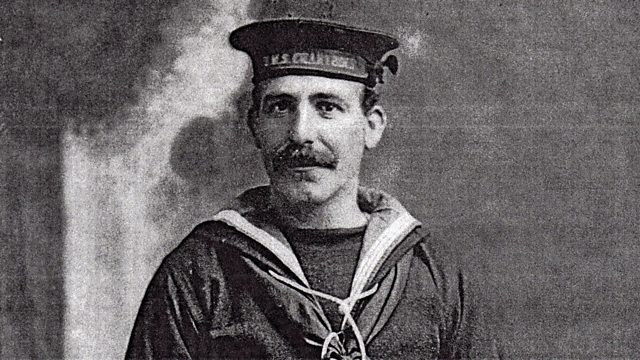Heligan, Cornwall: The Missing Gardener Accused of Desertion
A war widow, a tragic injustice and a reputation in tatters
In August 1914 Heligan staff signed their signatures on the wall of ‘Thunderbox Room’ (the outdoor toilet).
Pencil-written signatures of gardeners and labourers can still be made out on the wall of a "thunderbox" toilet on the estate. The poignant list of 12 names, dated August 1914 was rediscovered in 1990. At least six Heligan workers are known to have died in the war. Among them is Charles Dyer.
With help from his descendants and the local community, Heligan and its lead historian, Peter Lavis, have uncovered a heart-breaking story which demonstrates the tragic impact war had on one young Mevagissey family.
Charles was a gardener at Heligan prior to World War One and lived at Heligan Mill with his wife Annie, and their three children; Annie, Robert and Charles. When he wasn’t working at Heligan he would help other family members who were Mevagissey fishermen.
He was also a member of the Royal Naval Volunteer Reserve and was ‘called up’, with many other Mevagissey men, two days before Britain declared war on Germany on 4 August 1914.
In May 1918 Charles was injured or wounded, the family do not know which, and was taken to hospital at HMS. Pembroke, a land based facility attached to Chatham Dockyard.
One morning Charles walked out of the main gates and was never seen alive again. The Navy listed him as a deserter and notified his wife Annie. She and the children had to suffer the stigma of the Navy’s action and the family’s reputation was in tatters, along with the loss of Charles’s income.
This apparently lasted for a couple of years until one day a body was discovered in woods close to Chatham. The remains were identified by the wedding ring still on it – Charles and Annie had their names engraved on the rings when they married.
The Navy collected the remains and sent them back to Mevagissey for burial. They also removed his name from their deserters list and gave Annie a pension. She at last received a regular income but, of equal importance, the family regained its reputation.
Charles Dyer is buried in Mevagissey Cemetery under a Commonwealth War Graves Commission headstone. He is given a date of death of 24 May 1918, one day after he disappeared. No one knows the exact date of his death, or the reason for his walking out of those gates.
The family say Annie always wore black and mourned for her husband until her own death in 1966 when she was aged 84. She would burst into tears at the mention of his name (source: Peter Lavis, Heligan historian).
Location: Heligan Estate, Cornwall PL26 6EN
Photograph of Charles Dyer courtesy of Peter Lavis from Heligan Gardens, who also presents the story.
Duration:
This clip is from
Featured in...
![]()
�鶹�� Radio Cornwall—World War One At Home
Places in Cornwall that tell a story of World War One
![]()
Memory—World War One At Home
Memorials and the commemoration of wartime lives
![]()
War at Home
Refugees, internment, training and protest.
More clips from World War One At Home
-
![]()
The loss of HMY Iolaire
Duration: 18:52
-
![]()
Scotland, Slamannan and the Argylls
Duration: 07:55
-
![]()
Scotland Museum of Edinburgh mourning dress
Duration: 06:17
-
![]()
Scotland Montrose 'GI Brides'
Duration: 06:41








